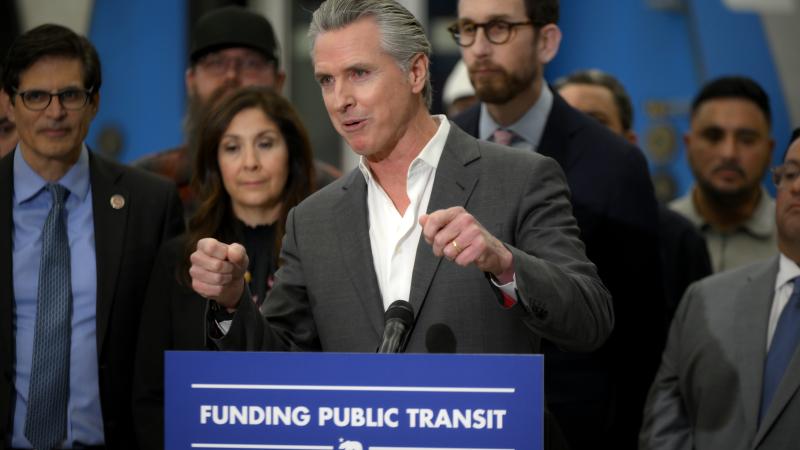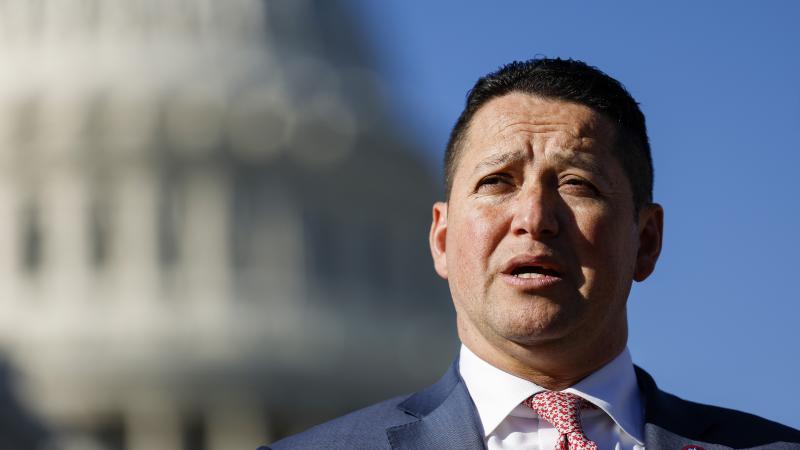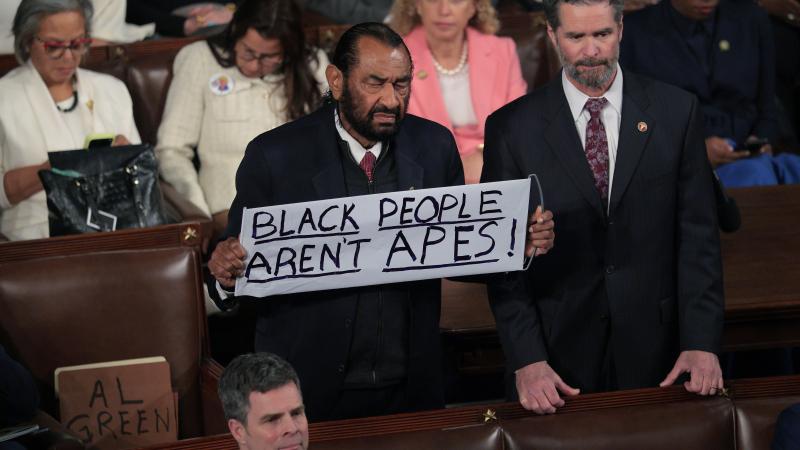Despite high costs and questionable benefits, proponents of EV mandates continue to defend policy
Despite ongoing bad news in the EV space, proponents of the mandates and subsidies remain committed to the goal of getting as many Americans as possible to ditch their gas-powered vehicles.
Though the Biden administration’s emissions standards – often referred to as an electric vehicle mandate – don’t kick in until 2027, the policy is already running into problems with charging station availability, declining consumer interest and automakers losing billions of dollars on their EV sales.
Despite these problems, proponents of the standards remain committed to the goal of getting as many Americans as possible to covert from gas-powered vehicles.
During a Senate Budget Hearing on the future of electric vehicles Wednesday, an EV-friendly panel was questioned about the costs and uncertain benefits. They remained steadfast in their support for the policies.
But not everybody agrees.
“Everyone is enamored with EVs," Michael Buschbacher, partner at the law firm Boyden Gray PLLC, later told Just the News. "That's the girl they want to take to the prom, and they've got eyes only for her. And that's the irrational way that people who fall in love with an idea tend to be.”
Buschbacher has represented individuals, companies and organizations with a focus on energy and environmental matters.
He said he wasn’t speaking for anyone he’s representing, but he offered his personal perspective on the issues of EV mandates.
Swell cars
An exchange between Sen. John Kennedy, R-La., and the panel at the committee hearing seemed to illustrate such a love affair.
“If electric cars are so swell, how come we have to pay people to drive them?” Kennedy asked the panel witnesses referring to the tax credits for buying one.
Jesse Jenkins, an assistant professor at Princeton University, said that the average EV is costs $10,000 more than gas–powered cars, but that gap is falling.
So, the $7,500 tax credits consumers get for buying EVs, he argued, is a “temporary intervention to help the auto industry strategically compete in global markets and the transition as battery costs fall.”
Maureen Hinman, co-founder and chairwoman of the Silverado Policy Accelerator and among those who testified, explained why she chose to buy an EV in 2015.
“I’m sorry, you’re not answering my question,” Kennedy told Hinman, who like all of those on the panel owns an electric vehicle.
The Louisiana Republican held up a map showing that most of the electric vehicle ownership, which makes up 1.6% of all vehicles on the road, is concentrated on the West Coast, primarily California.
“Everybody else is kind of lukewarm, and I’m trying to understand why,” Kennedy said.
He also said the reason he thinks most of the country is reluctant to adopt EVs is because they’re expensive and charging options aren’t adequate.
“When people drive a car, they like it to run, and when it runs out of electricity, it stops. And they can’t find a place to charge them,” Kennedy said. He then asked the panel how much it would cost taxpayers to get everyone into an electric car. None of the witnesses was able to give the senator a figure.
“There are tradeoffs in all of this," Kennedy said. "Despite what the Princeton professor thinks, we don't have unlimited money."
Climate goals
The Biden administration’s emissions standards will require automakers in the next several years to make a large portion of their lines electric, which is why the administration’s policies are often referred to as an EV mandate. It’s a description that proponents of the policies object to, because the policy doesn’t specify what technologies the automakers must use to be in compliance.
“It's kind of like saying, you can have it in any color you like, as long as it's black,” Buschbacher said.
Among the arguments for the mandates is that the transportation sector produces 28% of the greenhouse gas emissions in the U.S., and widespread EV adoption would effectively eliminate most of that.
Buschbacher said that, according to the federal government data, the vehicle emission standards will reduce greenhouse gas emissions by 7.5 billion metric tons through 2055. That will reduce global warming by 0.003 degrees celsius by 2100. Carbon dioxide has a very long half life in the atmosphere, meaning it will be decades before atmospheric concentrations drop.
“So in 76 years, you can expect an almost undetectable third decimal point degree change of some sort from what they're doing,” he said, adding that he didn’t think the estimate emissions reductions are accurate.
Even if so-called "tailpipe" emissions reductions are realized, it doesn’t include so-called "upstream" emissions.
Electric vehicles require more emissions to produce than gas-powered vehicles. So, the EV has to be driven for tens of thousands of miles before there’s a net reduction in emissions.
As Mark P. Mills, director of the National Center for Energy Analytics, said in a recent report for the Manhattan Institute, there are so many variables in the supply chain that there’s no way to know with any certainty the amount of averted emissions from widespread EV adoption – and it may be zero.
Buschbacher also raised other concerns.
“It's important to remember that climate is not the only kind of environmental impact that we should be concerned about," he said. "So lithium mining [for EV batteries] is pretty gross, and has a lot of pollution, externalities that are acknowledged, which is one of the reasons why we don't do much of that here,”
In an op-ed in the Wall Street Journal, Buschbacher argued that particulate emissions will actually increase as a result of EV adoption. Electric vehicles are heavier, so they produce more tire wear and therefore more particulate emissions.
Degrowth
Though it’s hard to demonstrate with any certainty that EV adoption will result in significant emissions reductions, Sen. Sheldon Whitehouse, D-R.I., chairman of the Senate Budget Committee, argued in his open remarks that EVs are “our pathway to climate safety.”
Buschbacher questioned whether proponents of the EV mandates believe their own rhetoric.
“There's a lot of techno optimism that goes into the rhetoric from regulators in the EV space, about how we're just nudging things along," he said. "Soon, everything's gonna be better, more consumer choices somehow – which makes no sense – more performance, better and lower costs, all these great things. But the reality is, I think a lot of the regulators don't actually believe that."
Buschbacher also argued regulators have a “de-growth mentality,” and the EV mandates fit into that vision. By driving up the costs of vehicle ownership, fewer people will be driving and driving less, according to the theory.
“They think that industrialization is basically a bad thing, and that we just need less," he continued. "We're over consuming and over producing. They never explain how they would make this happen globally, because no one has a proposition for changing the behavior of China or India, which, understandably, do not take a degrowth mentality to their future."
While proponents of the EV mandate argue it will produce progress, Buschbacher said, the human race has seen enormous technological advances over the years without mandating it.
“The Iron Age didn't begin because someone mandated that everyone get rid of bronze. The hydrocarbon, fossil fuel age didn't begin because people said, ‘Stop burning wood,'” he said.
The Facts Inside Our Reporter's Notebook
Links
- charging station availability
- declining consumer interest
- automakers losing billions of dollars
- future of electric vehicles
- the $7,500 tax credits
- Silverado Policy Accelerator
- make a large portion of their lines electric
- transportation sector produces 28% of the greenhouse gas emissions
- it will be decades before atmospheric concentrations drop
- National Center for Energy Analytics
- explains in a report
- op-ed in the Wall Street Journal
















